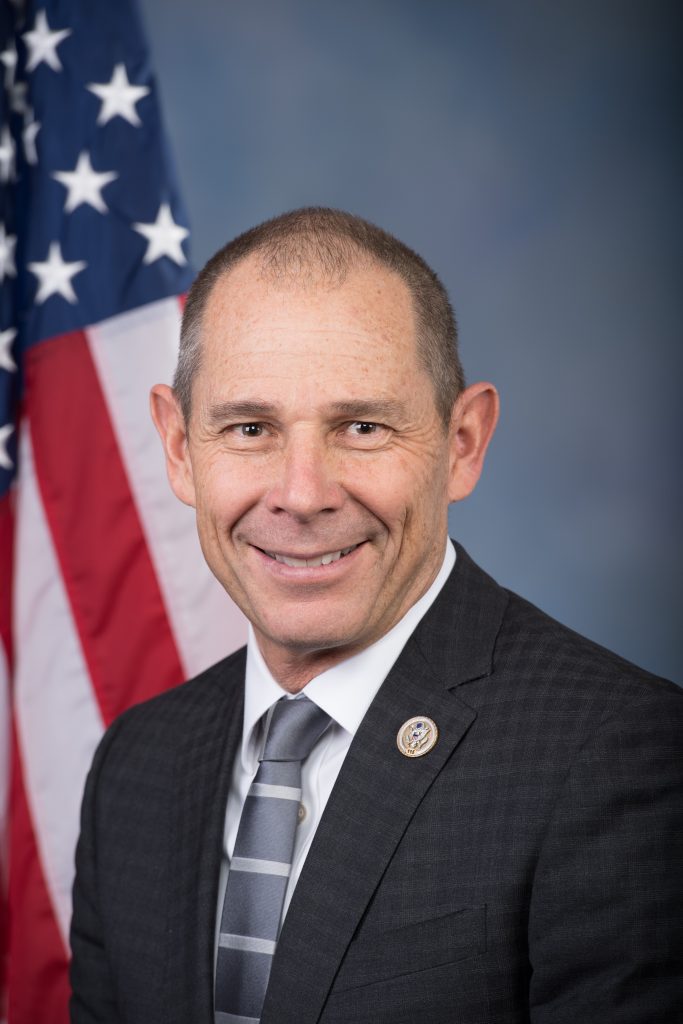
Rep. John Curtis, R-Utah, chair of the Conservative Climate Caucus, is fast becoming the go-to person when it comes to representing Republicans who support policy changes on climate change.
Case in point was a national webcast Monday, Oct. 25, sponsored by the Washington Post, where Curtis, a BYU alumnus and former Provo mayor, spoke in an interview about his hopes for the upcoming COP26 climate summit and the Republican Party’s role in climate change. He also shared his views on national security, the $3.5 trillion reconciliation bill and relations with China.
COP26 is the 26th annual global United Nations conference and will address crucial climate discussions with representatives from 200 different countries. The conference will go from Oct. 31 to Nov. 12 in Glasgow, Scotland.
Several House Republicans in Congress will be attending COP26 as a delegation for the first time ever. Rep. Garret Graves, R-La., will be leading this delegation along with Curtis.
Curtis said he does see a path forward in having Democrats and Republicans in the future having a joint delegation, and that it is important they “join forces and work on this together.”
After voicing his disapproval of the Keystone Pipeline and the implications of being dependent on other countries for oil production, Curtis stated his support for bipartisan solutions.
“I think we can have energy independence and be clean. I don’t think we have to compromise one for the other,” Curtis said. Measures can both safeguard the environment and uphold national security, he added.
In regards to engaging with China, Curtis shared his experience of living in Taiwan and serving on the China taskforce. He said the relationship between China and the U.S. needs to be fixed.
“We don’t have the luxury of ignoring China and the problems that they bring,” Curtis said. “I do believe this is a great challenge for the president and that we need to fix this relationship and that the peace, the security of our country is dependent on us fixing this relationship.”
Curtis also addressed the $3.5 trillion reconciliation bill, a House Democrat-proposed bill aiming to combat social safety and climate change that was highly opposed by Republicans, saying that it “encompasses myriads of other agendas” that were difficult for Republican Party members to concede to. He also stated his wish for the climate discussion to be separated from the other items in the bill.
With the uncertainty of Congress reaching a decision, Curtis hopes Biden will paint the U.S. as a leader at COP26. He advised Republican lawmakers to be leaders about climate change and claimed that them being “somewhat absent in the conversation” was a contributing factor for conservative media not supporting the science behind this issue.
When asked about Republican opinions regarding climate change, including the rhetoric that is not in line with science, Curtis admitted he was frustrated and said, “I know firsthand we can shout from the house tops and people don’t like to listen. They want to hear the extremism — right?”
Curtis shared that more than 70 Republicans have joined the Conservative Climate Caucus, just over one-third of all Republican House members. According to Curtis, this number “exceeded everyone’s expectations,” but now, they have work to do.
As the Conservative Climate Caucus progresses, one goal that Curtis mentioned is to have a methane bill come out of their office along with other productive legislation.
“I believe natural gas is part of the answer to reducing worldwide greenhouse gas emissions, but only if we’re able to control methane,” Curtis said.
Other suggestions Curtis mentioned were to push more nuclear and technological advances.
In addition, Curtis reaffirmed his certification of the 2020 election results and acknowledged his decision last week of not voting to hold Steve Bannon in contempt. Only nine Republicans voted in favor to hold Bannon in contempt because of his refusal to comply with the Jan. 6 Select Committee investigation into the insurrection on the Capitol. According to Curtis, he did not see the committee as a legitimate effort from Congress.
Although Curtis said there will not be any “grand” announcements from the Conservative Climate Caucus at COP26, he believes the presence and engagement of the Republican Party is important and that party members want to be involved in future conversations.
“We want to find ways to support the president where we can on his agenda,” Curtis said. “And where we disagree with him, we want to put ideas forward for him to consider and hope that he’ll be as open-minded considering our ideas as he would like us to be with his ideas.”




